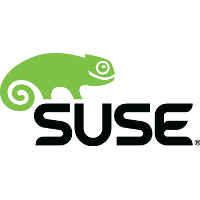
The officially supported collection of software in SUSE Linux Enterprise Linux 11 Service Pack 3 does not contain all conceivable Linux software, but in the Open Build System there are tons of software that is build for SLES 11SP3. Installing these software packages and repositories is of course on your own risk, as they are not a part of the officially supported offering. In practice however it works quite well to have a officially supported SLES base and on top of that a handful of additions that you care about yourself.
Node.js on SUSE
The JavaScript server side engine Node.js is an example of a program that you might need to complete your mission, but which isn’t in SUSE by default. You could of course download and install the sources from nodejs.org, but that isn’t a very good option in terms of maintenance, security and automatic updates. The optimal way is to browse the public SUSE instance of the Open Build Service at software.opensuse.org. By entering the search term “nodejs” and from the results clicking “Show other versions” and opening the section “SUSE SLE-11 SP 3” and “Show unstable versions” you can see all the repositories that contain SLES11SP3 compatible packages with the name “nodejs”.
The first colon separated part in the repository names indicate what the type of the repository is. Repos named “home:” something belong to individual users (similar to a PPA repository at Launchpad.net for those who are familiar with Ubuntu). Other names are project names, and thus more likely to have a group of maintainers and thus preferred over individual users repositories. In this case the best repository is likely to be the official devel tools subproject nodejs at “devel:languages:nodejs”.
Once the correct line is identified simply click on the “1 Click Install” link and a .ymp file will be downloaded and opened with the SUSE package manager. This .ymp file contains both the package name and repository information. If installation is executed, the repository will permanently be added to the system and the package in question installed, and in future also automatically updated. Just like PPAs in Ubuntu this repository is single-purpose and only contains a Node.js packages so no other package on the system will be affected of overridden by updates from this repository, so it is fairly safe to use. One click install also has a command line tool, so alternatively you could run:
$ OCICLI http://software.opensuse.org/ymp/devel:languages:nodejs/SLE_11_SP3/nodejs.ymp
Git and SUSE
When deploying your Node.js apps you most likely also need the Git version management software. With the same principles above you can simply install it by running:
$ OCICLI http://software.opensuse.org/ymp/devel:tools:scm/SLE_11_SP3/git.ymp
Software.openSUSE.org
Using these same principles you can install any software from the openSUSE instance of the Open Build Service. Just browse to http://software.opensuse.org/find (often abbreviated as s.o.o) and start searching!



